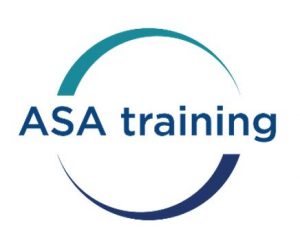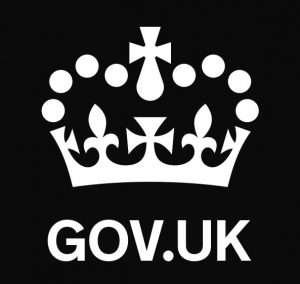The purpose of this document is to promote a professional and positive approach from all learners and to assist ASA Ltd in the decision of whether a student is fit to practice and undertake the relevant qualification. As a Centre, delivering a professional and registerable qualification, ASA Ltd will support and implement the GDC Fitness to Practice policy. Learners must demonstrate during their education and training that they have the knowledge, skills and attitudes expected of a registered dental care professional. All learners should read the ‘Standards for dental professionals and General Dental Council Fitness to Practice document.
Reference: Student Professionalism and Fitness to Practise document – January 2024
IT IS ESSENTIAL THAT ALL LEARNERS READ THE “GDC STUDENT FITNESS TO PRACTISE DOCUMENT”
THIS CAN BE FOUND AT: – WWW.GDC-UK.ORG
GDC Requirements:
“Student professionalism is a significant part of meeting student fitness to practise requirements.
This is highlighted in the student guidance. Student professionalism is the way students respond
to the standards required of them and the issues they may face during training. It is how they
demonstrate the appropriate attitudes and behaviour with patients and colleagues (staff on the
training programme, employers and other students) and develop the ability to know when to
seek advice and support in terms of their learning, clinical work or technical work and health.
It also encompasses the way they respond when they are made aware of issues and offered
advice and support”.
Patients will expect:
- to be treated with respect;
- for those involved in their care to behave professionally;
- to be listened to; and
- to have their preferences and concerns taken into account.
Before a qualification can be started there are requirements that must be met to allow a learner to progress and commence a qualification.
It is important that learners have a full understanding and comply with the following;
- Behavior whilst in and outside of study
- Social media use
- Duty of candor
- Confidentiality
- Equality, Diversity & Inclusion
All learners must complete and sign the “policy & governance” checklist to confirm full understanding and compliance.
The Dental organisation placing a learner onto a training programme must ensure that the learner has met the requirements of a Trainee Dental Nurse and is fully supported by the practice to achieve the qualification route they have selected. In addition a GDC registered mentor is in place within the workplace to support the learner to achieve the qualification aim and that practical elements of training are given alongside the delivery of the qualification by the provider.
The mentor should be available to support the learner and discuss problems/challenges in a supportive and confidential environment. It may be appropriate to offer support to the learner alongside Fitness to Practice procedures and sanctions.
When Fitness to practice concerns are identified anyone supporting the learner ie Mentor would be required to inform the appropriate person if there is a reasonable belief that the issue raises, or will raise, Fitness to Practice concerns or poses a risk to colleagues, patients, or the public.
Should a Fitness to practice concern progress to the next stage, (sanction stage 2) the Mentor or person supporting the learner may not be involved in the decision by the organisation/ Training Provider to proceed with a Fitness to Practice investigation.
SUPPORT FOR LEARNERS
It is important for students to have the opportunity, where possible, to seek support for any matter before it becomes a fitness to practise concern. This is so that appropriate help can be provided.
Providers should encourage learners to ask a member of staff who would be the best person to speak to if they are worried that there are issues with their work, health or behaviour. You should be able to direct learners to a range of people or services depending on what their worry is about. These may include:
- personal tutors
- student health services
- disability advisors
- occupational health services
- confidential counselling
- student groups
- support from your employer
If necessary, the provider and learner should agree plans that are developed together to address health, behaviour, or work issues before fitness to practise becomes a concern. This may involve staff on work placements or employers. However, the decision on the plans made must be based on an assessment by the provider of the risk to patients and the public.
When fitness to practise concerns are identified, it may be appropriate to offer support to learners alongside fitness to practise procedures and sanctions.
Reasonable adjustments are expected to be made for learners with disabilities and those with other health requirements to allow them to achieve the learning outcomes on the programme. Although adjustments cannot be made to the learning outcomes themselves, reasonable adjustments can be made to methods of teaching and learning, and to the assessments.
Learners should be aware that anyone providing support or pastoral care is required to inform the appropriate person if there is a reasonable belief that the issue raises or will raise fitness to practise concerns or poses a risk to colleagues, patients or the public.
In the event of formal proceedings or hearings, ASA will ensure that the learner is aware they are allowed to have legal representation or have a supporter present if they wish to do so. If a student is a member of a defence/protection society or professional body, they may be eligible to receive free advice.
FITNESS TO PRACTICE PROCEDURE
This procedure works in line with ASA Ltd’s Progression Concern procedure. The Progression Concern Procedure will have been used/followed and the FTP process will be used once the progression concerns process has been exhausted. At any time, ASA Ltd can decide to use the FTP Procedure with immediate effect, based on the element of risk to patients, learners, team members and colleagues.
Once a concern has been raised and documented the Internal Management Team at ASA Ltd will decide if there is a case to answer and whether to proceed to the next stage of a Fitness to Practice procedure.
All discussions, evidence, reports, paperwork and anything relevant to the investigation process will be documented and recorded formally.
The Management Team will at all times keep in mind the balance between patient safety and the interests of the learner. Mitigating factors will be considered by the Management Team when deciding on the appropriate outcome. All decisions should be taken in light of any guidance set by the GDC and should be consistent with the regulations and procedures maintained by the ASAT Ltd, Award Bodies and Funding Organisations.
ASA Ltd has a formal Appeals Procedure and Disciplinary Procedure.
Any concerns regarding Fitness to Practice should be discussed with the Head of Quality & Apprenticeships;
Claire Lamb
01604 871340
If a fitness to practice concern needs to be raised externally, the following details can be used;
NEBDN
GDC
020 7167 6000
APPLYING THE THRESHOLD OF LEARNER FITNESS TO PRACTISE
Criteria
ASA will have clear criteria for judging the threshold of fitness to practise.
The criteria should be applied when evaluating all cases. Training will have been provided on how the criteria should be applied. Review of their application/ implementation should take place. This could be in the form of calibration exercises based on past cases. Criteria should take into account whether the concern may affect their ability to continue with their programme or to practise as a dental professional after qualifying. This includes the possibility that they could put patients or others at risk. Evidence should be considered on the balance of probabilities. When considering this threshold, decision-makers may want to reflect on the following circumstances when a question of fitness to practise arises:
- A learners behaviour may have harmed patients or put patients at risk of harm
- Harm or a risk of harm may be demonstrated by an incident or series of incidents that cause concern to personal tutors and academic or clinical supervisors. A series of incidents could indicate persistent failings or other repeated departures from good practice which are not being, or cannot be, safely managed through pastoral/learner support or support has been tried and has failed
- A student is alleged to have shown a deliberate or reckless disregard of professional and clinical responsibilities towards patients and colleagues
- An isolated lapse from high standards of conduct – such as a rude outburst – would not in itself suggest that the learners fitness to practise was in question. But the sort of misconduct, whether criminal or not, which indicates a lack of integrity on the part of the learner, an unwillingness to behave ethically or responsibly or a serious lack of insight into obvious professional concerns will bring a learners fitness to practise into question
- A learners health or impairment may be compromising patient safety. Medical issues can be difficult to manage and there may be personal issues that students are under no obligation to disclose. However, patient safety must be prioritised and a learners willingness to recognise an issue and response to advice taken into account
- A fitness to practise procedure does not need to be initiated merely because a learner is unwell, even if the illness is serious. However, a learners fitness to practise is brought into question if it appears that the learner has a serious medical condition (including misuse of drugs or alcohol); AND the learner does not appear to be following appropriate medical advice as necessary in order to minimise the risk to patients and colleagues.
PRACTISE PANEL COMPOSITION
|
Investigator |
Claire Lamb
|
|
Panel (3 of the following will be selected) |
John Turner Janice Fitch Claire Nithiananthan Nicola Hornby ASA Legal representative Dental Practice Principal/Representative
|
TIMESCALES
| Initial FTP Investigation | 28 days
|
| Panel | 28 days
|
| Final decision | 14 days
|
| Appeal request | 14 days
An appeal will only be considered if new evidence can be submitted within this time frame.
|
| Appeal process |
28 days
|
OUTCOME OF A LEARNER FITNESS TO PRACTICE HEARING
Possible outcomes of a hearing include:
- learner receives no warning or sanction;
- learner receives a written warning where there is evidence of misconduct but it is assessed that the learners Fitness to Practice is not impaired and does not require any of the sanctions listed below;
- the learners Fitness to Practice is judged to be impaired and they receive a sanction.
Beginning with the least severe, the sanctions are;
- Conditions or undertakings
- Suspension from dental course
- Expulsion from dental course
LEARNERS SHOULD BE AWARE that when applying for registration they have a duty and responsibility regarding disclosure when completing the GDC declaration regarding Fitness to Practice and must declare the outcome of any previous formal hearings.
On enrollment to the course, learners must declare any criminal convictions or cautions as this may affect registration with the GDC.
Warnings and sanctions will remain on a learner’s record for the duration of the learner’s qualification.
There is an obligation on providers to ensure that the pre-qualification requirements are met, however it is the responsibility of the Learner to provide honest and truthful information at all times.
ASA ltd will monitor the principles set out in Standards for Dental Professionals’ and ensure that learners behavior does not fall beneath the expected standards required. Should a learner’s behavior cause concern, ASA Ltd will consider if this amounts to a Fitness to Practice concern and whether these concerns warrant consideration through the formal procedures in place.
PROGRAMME DISCIPLINARY PROCEDURE
During the period that a learner is involved in a qualification the Provider has an obligation to ensure that all aspects of the learner’s fitness to practice are maintained. In some circumstances it may be necessary to invoke a disciplinary procedure to ensure that learners maintain focus and contribute to the quality and integrity of the learning programme.
Some examples of when the procedure may be invoked are below. The list is not exhaustive but illustrative of the types of concerns that could raise a question over fitness to practice.
- Learner behavior
- Disregard of patients /colleagues professional and clinical responsibilities
- Learner health or impairment may compromise patient safety
- Learner may have violated patient trust, autonomy or other rights.
- Learner may have behaved dishonestly, fraudulently or in a way designed to mislead or harm others
The provider must also ensure that other areas of the learner’s attitude to the qualification do not impair the progress or integrity of the qualification. Additional areas of concern are listed below and may invoke the disciplinary procedure.
- Criminal conviction
- Drug or alcohol misuse
- Aggressive, violent or threatening behavior
- Inappropriate use of social media – further information outlined within social media policy
- Uncommitted to the learning programme
- Neglect of admin
- Poor time management
- Non attendance of pre-arranged meetings
- Cheating or plagiarising work
- Not producing set work on time
- Forging names or signatures
- Dishonesty or fraud
- Unprofessional behavior
- Health concerns
Should it be necessary to invoke the disciplinary procedure regarding fitness to practice the type of concern would determine the process that would be invoked.
Initially the potential severity of the behaviour would determine the action taken. The remedial action may vary from a written caution, or warning, to suspension, or total expulsion from the learning programme. Records will be kept of all actions imposed by the Provider throughout the learning programme and no action will be taken without consulting with the Practice except in acute, exceptional circumstances.
Any sanction imposed by the Provider will have an appeal process. That process should be received by the Provider IN WRITING ONLY, stating the reasons for the appeal, within 10 working days of any sanction being imposed on any student/learner.
SANCTIONS
- Verbal Warning or Written Warning
- Conditions for Improvement & Expectation
- Undertakings/Restrictions to Clinical Practice
- Suspension
- Dismissal
Copy of recording form:
| Learner ID | FTP Concern | Investigation required?
|
Panel outcome | Final decision communicated | Appeal? |






